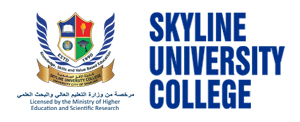Treatment research (also called “clinical trials”) generally involves an intervention such as medication, psychotherapy, new devices, or new approaches to surgery or radiation therapy.
This refers to the practice of looking for better ways to identify a particular disorder or condition.
Screening research aims to find the best ways to detect certain disorders or health conditions.
Also known as “supportive care,” this research explores ways to improve comfort and the quality of life for individuals with a chronic illness.
Genetic studies aim to improve the prediction of disorders by identifying and understanding how genes and illnesses may be related. Research in this area may explore ways in which a person’s genes make him or her more or less likely to develop a disorder. This may lead to development of tailor-made treatments based on the patient’s genetic make-up
Epidemiological studies seek to identify the patterns, causes, and control of disorders in groups of people.
| Stream | Graduation | After Graduation | After Post Graduation | |
|---|---|---|---|---|
|
Path 1
|
Clear Class XII with Science Stream with Biology | Pursue B.Sc. in Clinical Research for 3 years/MBBS/BDS/B.Pharm etc. | Pursue M.Sc. in Clinical Research for 2 years | Pursue Ph.D. in Clinical Research for 3-5 years |
|
Path 2
|
Clear Class XII with Science Stream with Biology | Pursue B.tech or B.sc/M.sc in Life sciences | Pursue Post Graduation Diploma in Clinical Research for 1-2 years | – |
[/td_block_text_with_title][td_block_text_with_title custom_title=”WORK DESCRIPTION” header_color=”#dd3333″ separator=”” tdc_css=””]
[/td_block_text_with_title]

[formcraft id=’72’]